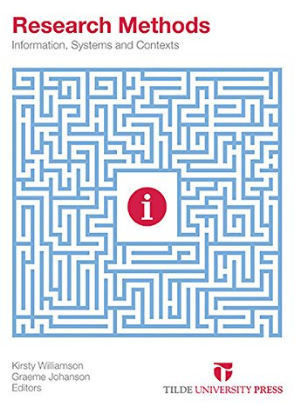 For most archivists, research continues to be shrouded in mystery. Unfortunately this contributes to the growing gap between practitioners and researchers in our profession.
For most archivists, research continues to be shrouded in mystery. Unfortunately this contributes to the growing gap between practitioners and researchers in our profession.
This blog post sets out to debunk a couple of myths that are stopping people from doing research.
Myth 1: I don’t have the authority to do research.
FALSE. Everyone is an expert in something. The first trick is to identify what you know.
Example: I have only worked in the profession for three years. So last year, a couple of us organised a panel discussion at the ASA Conference about what it was like to be a new professional in the Australian archival sector.
Myth 2: Everything’s already been done.
FALSE. The more you read, and the more conferences you go to, the better you get at identifying the gaps. The second trick is reading as widely as possible. Join your professional association and gain access to their journals, you will soon be overwhelmed by how much has not yet been rigorously considered. Journal articles will help you out here by identifying their own limitations.
Example: “The impact of the WW1 centenary on the public’s exposure to archival material was out of scope”. Remember: Another article’s limitation is your opportunity.
Myth 3: I don’t write well enough.
FALSE. The more you read and the more you write, the more you get the hang of the jargon. Journal articles are written in dense, academic language because the writers want to convey complex ideas in fewer words. Every writer approaches things differently; compare the dense, academic style of the Canadian academic Terry Cook with the more conversational style of practitioner Cassie Findlay. The more you write, the more you will develop your own style. Start your own blog or contribute to others’ (e.g. the Recordkeeping Roundtable.
Myth 4: I don’t know how.
Ok, this one is possibly true. However it’s one of the easiest obstacles to overcome! In order to get your research published you need to prove two things: that the research was rigorous and that you are contributing to existing knowledge.
You demonstrate these two things by completing the following process:
- Identifying the gap in existing knowledge through a literature review
- Articulating your research question, adapting the literature review accordingly
- Designing your methodology to best suit your research question
- Collecting your data
- Analysing your data
- Comparing your findings with existing knowledge
- Identifing what new knowledge has been gained
- Writing it up
I would recommend getting your hands on this book as it guides you through the steps listed above.

Of course there are little tips and tricks that I’ve only learnt by asking experienced researchers. The best advice I can give is just to talk with as many people as possible. Collaboration opportunities are likely to come your way if people know you are interested.

Pingback: 2016: The Pact that Proves the Value of New Professionals | Personal Recordkeeping, Identity and Archives
Pingback: Archivist: Research Support or Researcher? | Personal Recordkeeping, Identity and Archives